Journals
-
Insight - Civil Engineering is an academic journal of civil Engineering and engineering management, which is issued globally. Our mission is to publish original research papers in civil engineering, which can reflect the latest research trend and development direction of civil engineering and engineering management discipline. The journal also seeks to provide reference to civil engineering and engineering management in areas related to teaching, scientific research and engineering application.
ISSN:2630-4716(O)
-
Insight--Energy Science is an international, multi-disciplinary journal in energy sector and research. The target of the journal is to be a leading in introducing theoretical and experimental novel ideas and innovative research work in addition to an authoritative source of information for analyses, reviews and evaluations related to energy sector.
This journal is covering all energy and related subjects in engineering and technology, and strongly focus on energy materials, thermal sciences, energy analysis, energy modeling and prediction, integrated energy systems, energy storage, energy conversion, renewable and sustainable energy in addition to energy planning and energy management.
 ISSN:2661-3042(O)
ISSN:2661-3042(O)

-
Insight-Information aims to bring together the best new research addressing social, organisational and managerial aspects of digital systems and new information Technologies. It publishes work from all disciplinary, theoretical and methodological perspectives. The expected audience are researchers, scholars, teachers and advanced students in the fields of Information Systems and Information Science, as well as IT developers, consultants, software vendors, and senior IT executives seeking an update on current experience and future prospects in relation to contemporary information and communications technology. The scope of the journal includes strategy, change, infrastructure, human resources, sourcing, system development and implementation, communications, technology developments, technology futures, national policies and standards, as well as topics that advance understanding and application of research approaches and methods. 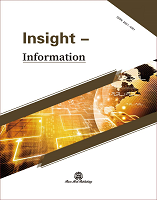
ISSN:2661-4081(O)
-
Insight - Mechanics publishes articles in English in all areas of Mechanics from the physical and mathematical basis to materials engineering, technological applications and methods of modern computational mechanics, both pure and applied research. The field of Mechanics will be understood to encompass the behavior of continua, fluids, solids, particles and their mixtures. Submissions must contain a strong, novel contribution to the field of mechanics, and ideally should be focused on current issues in the field involving theoretical, experimental and/or applied research. 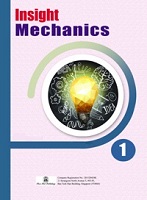
ISSN: 2661-3093

-
Insight - News Media is an academic journal of civil Engineering and engineering management, which is issued globally. Our mission is to publish original research papers in civil engineering, which can reflect the latest research trend and development direction of civil engineering and engineering management discipline. The journal also seeks to provide reference to civil engineering and engineering management in areas related to teaching, scientific research and engineering application.
Insight - News Media is an international, peer-reviewed journal that aims to stimulate debate on the interaction of innovations in media theory, media practices and media technologies. Media and technologies are interpreted in the broadest sense, to encompass digital broadcasting, the internet and online resources, and other new and emerging formats, focus on multimedia computing and communications systems. It covers such topics as hardware and software for media compression, media storage and transport, workstation support, data modeling, and abstractions to embed multimedia in applications programs.
Insight - News Media (ISSN: 2661-3107) is a double-blind peer reviewed open access scientific journal concerned with the role and impact of journalism and the media. It is published online by PiscoMed Publishing.
Our aim is to provide a research forum on the journalism and media, which can reflect the latest research trend and development direction of social development and contemporary transformation. It welcomes theoretical and empirical research studies in the form of research articles, review articles, short communication, editorials, and so on.
It focuses on the social, economic, political, and cultural dimensions of journalism and the media. Please see "Focus and Scope" for detailed scope.
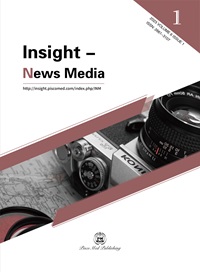
ISSN: 2661-3107 (O)
-
Insight - Physics publishes important advances in various branches in physics,focus on the study of matter, energy, space, time, and in particular their respective properties and interrelationships with each other. Physics is a knowledge of the laws of nature; More broadly, physics explores the phenomena that occur in nature to understand its rules. 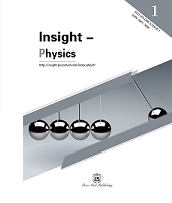
ISSN: 2661-3069

-
Insight - Sports Science (ISS) dedicated to the advancement of sport/exercise/health sciences. By publishing original research, scholarly reviews, opinion papers, and research highlights/commentaries, it aims to build a communication platform for international researchers to effectively share scholarly achievements.
With a distinguished editorial board, it is dedicated to maintaining high academic standards, integrity, and excellence by publishing scholarly work of the highest quality in the sub-disciplines of sport/exercise/health sciences.
ISSN: 2661-409X(O)
-
Insight - Statistics is a reference journal. The article will include references and figures. Creativity, quality and clarity will be the criteria for selecting published materials.
The proliferation of literature and the long delay in publishing have made it difficult for researchers and practitioners to keep up with new developments outside their professional fields. The purpose of statistics and probability letters is to help alleviate this problem. Concise communication enables the reader to quickly and easily digest a large amount of information and to keep up with the latest developments in all areas of statistics.
Key results and central ideas must be presented in a clear and concise manner. Theories and methods can be published either by omission or by mere sketches, but only if sufficient supporting material is provided to verify the results. Experiences and calculations with important values will be published. We also plan to publish applications and case studies to demonstrate innovative use of existing technologies, or interesting innovative ideas for data collection, modeling, or reasoning.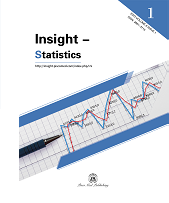
ISSN: 2661-3115










